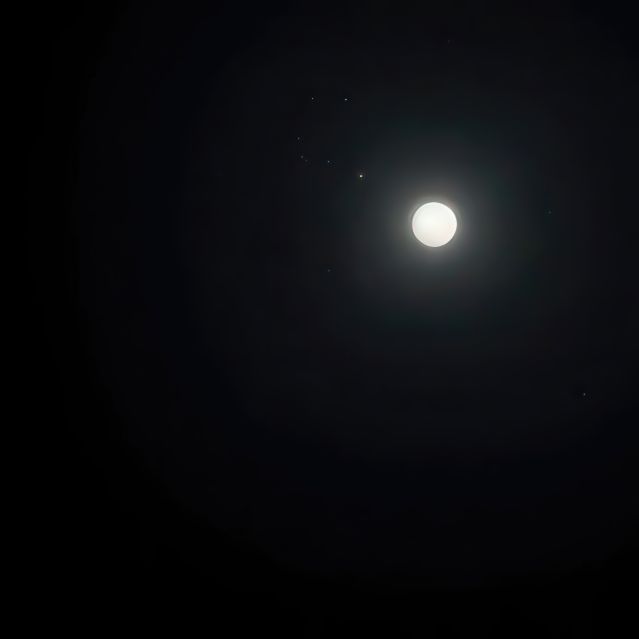Free Will
Reclaim Your Existence in an Anti-Human World—I, Exist
Personal Perspective: The freedom to reclaim meaning in a disorienting time.
Updated May 29, 2024 Reviewed by Lybi Ma
Key points
- The world has never been better, but meaninglessness is the problem of our time.
- Technocapitalism degrades meaning through commoditization, images, and virtual worlds.
- You have the power and freedom to reclaim your existence in an anti-human world.

Our world has dramatically changed in the last 250 years. As Matt Ridley said in his book, The Rational Optimist, we’ve undergone a great transformation. In his words, everything is better today: “Years of lifespan, mouthfuls of clean water, lungfuls of clean air, hours of privacy, means of traveling faster than you can run, ways of communicating farther than you can shout.” Bottom line: We’re living in an age of superabundance, convenience, and less struggle.
But there’s one major problem: People are experiencing meaninglessness like never before.
In The Psychology of Meaning in Life, Tatjana Schnell shares concerning survey results. In 2006, 4 percent of people were in an existential crisis. Fast forward to 2018 and that number spikes to 14 percent. Further, if you look at the age group between 16 and 29, the number skyrockets to 27 percent of people experiencing meaninglessness. This isn’t just feeling a little bummed out. This is an existential crisis that impairs daily functioning. Life feels pointless, worthless, and disconnected. No community. No feelings of significance. No coherence. Just existential confusion.
The first question: What is causing this?
And the answer is pretty straightforward: technocapitalism. While technology has improved life, we’re experiencing an existential void. Here’s why.
Reproducibility. Everything is mass-produced, and it’s very difficult to find meaning in a reproduced and simulated world. When everything is a copy of a copy, where’s the meaning? Mass production strips the world of its aura of originality. The value of art and other creations is their unique time and place in history, not solely in aesthetic beauty or utility. Salvador Dali’s painting, Spider of the Evening, means something because it was painted in 1940 and is about World War II. It has a surface-level fascination and visual interest, but its real value isn’t just in appearance. Its deep, meaningful value is personal and cultural: Who it came from and what was happening in the 1940s.
Lost in Illusion. For Guy Debord, who wrote The Society of the Spectacle, there’s a problem with living a life with images and screens at the expense of direct experience. Everything that was directly lived is now experienced through an overflow of visual images and virtual worlds: memes, videos, GIFs, emojis, and idealized social media profiles.
And this distances you from authentic human experience. Instead of engaging with the world firsthand, you become a passive consumer of manipulated realities. First, a passive existence is dulling and disengaging. You aren’t actively creating, establishing genuine relationships, or pursuing a worthwhile goal, and therefore you don't feel significant.
Second, manipulation is hollow and disorienting. There’s no authenticity. No truth. Filters are added to posts so they look perfect, deleting the messy, human parts that make experiences genuine. AI technologies completely transform pictures and videos, and today even write post content. Authenticity is traded for likes and shares. Tons of flash and photo editing, with no substance. Rather than a genuine connection, the influencer’s fundamental intent is manipulation.
The other problem: Getting lost in a wormhole of YouTube videos, or Netflix shows, sucks the life out of you. Doug Lisle, who wrote The Pleasure Trap, articulates this as supernormal stimuli that pump you up in the short term but make you sad later down the trail. It distracts you from direct experiences that give you meaning, replacing them with superficial pleasures that leave you empty inside. And, since it makes you happy in the moment, you have difficulty linking these “fun” experiences with bad feelings that happen much later.
Generative AI. In J.G. Ballard’s Studio 5, The Stars, there’s a semi-abandoned resort town where poets write with an auto-generating poetry machine called a Verse Transcriber. The world of Vermilion Sands is rich and bohemian, with futuristic houses and advanced technology, but there’s a pervasive sense of cultural decline. It’s sophisticated on the surface, and even laid back, convenient, and seemingly perfect, but the entire town is metaphysically empty. The poets are uninspired and closed off to themselves and their inner worlds. The homes are essentially abandoned, and everything is quite robotic. There’s no soul, no imagination, no spirit.
The reason is that the machine has alienated them from their humanity. They no longer engage in meaningful creation. Karl Marx said humanity will become technology’s appendage, a passive existence where you sit on the sidelines and watch machines do the work. Henry David Thoreau took it a step further and said you become “the tools of their tools,” suggesting that technology makes life better but paradoxically enslaves you. The machine rises above you, dominating the world with logic, reason, and rationality while degrading imagination and spirit. The world is created without you and instead by your owner—technology.
Commoditization, technology, and delegating to machines have made it difficult to find meaning in your life. The second question: How do you find it?
The answer is you don't find it, you create it.
Meaning was easy in the old days. Meaning is about feeling like you matter, that your life has significance, and believing in something greater than yourself. Not long ago, every day was filled with working hard in a tough world with your family, completing purpose-driven tasks like getting food and building shelter. Religion also provided day-to-day purpose, metaphysical significance, and spirituality. It wasn’t just about singing hymns or going through the motions of prayer and worship. It facilitated self-transcendence: believing in something bigger than yourself and, with no ambiguity, knowing where you will go when you die.
Today is different. Western societies are all ambiguity—all the time. Many of us have a choice in—everything. You have more freedom than ever before. Individualism is rising around the world. With his World Values Survey, Ronald Inglehart shows that we’ve moved from traditional community values, which emphasize societal obligation, to personal liberty and expressing our thoughts free from tyrannical rule.
That’s great. Dictators create heaven for themselves and hell for everyone else. However, as the Danish philosopher Søren Kierkegaard said, “Anxiety is the dizziness of freedom.” With freedom comes chaos, beautiful chaos, and a dose of anxiety topped with existential dread. The reason is that, once you’ve escaped the authoritarian king, life is your responsibility. You have detached from religion, politics, forced obligation, and your world is steered by no one other than you.
This makes creating a meaningful life a personal adventure. You won’t create it in the spectacle without substantial effort, for the spectacle’s mediated life is an indirect, anti-human existence. But the good news is this: You have the power to choose your mindset in the best and most horrific circumstances. While freedom is dizzying, and indirect experience is soul-depleting, you can choose to unplug, go analog, be in the world, be with other people, define your spirituality in good faith, ground yourself in scientific realities, and self-actualize in your own personal growth, ambitions, and achievements. And that’ll feel better than checking your phone 47,000 times a day, sitting in your home office on Slack, binge-watching Netflix, or texting instead of being in the beautiful world around you.
As John Muir said, “Climb the mountains and get their good tidings. Nature’s peace will flow into you as sunshine flows into trees. The winds will blow their own freshness into you, and the storms their energy, while cares will drop off like autumn leaves.”




